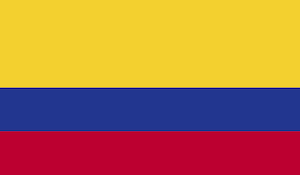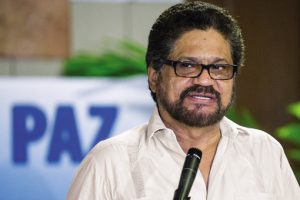
The Obstacles to Political Integration Post-Peace
After three years of negotiations with the Fuerzas Armadas Revolucionarios de Colombia (Revloutionary Armed Forces of Colombia—FARC) Colombian President Juan Manuel Santos has decided to go all-in on securing peace for his country. His political and personal commitment became clear earlier this year when he staked his entire campaign for his second term in office … Read more
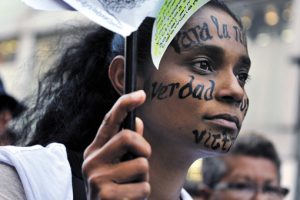
Law and Reconciliation in Colombia
Ultimately, the success of any peace agreement between the Colombian government and the country’s largest guerrilla group, the Fuerzas Armadas Revolucionarias de Colombia (Revolutionary Armed Forces of Colombia—FARC), will hinge on reconciliation. A successful process of reconciliation requires finding the balance between defending the rights of victims and gaining the trust of former combatants—members of … Read more
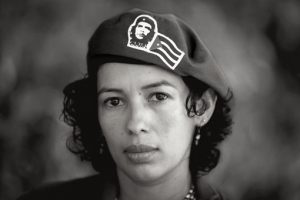
Colombia and the War in the Eyes of the FARC
Haz click aquí para leer una versión de este artículo en español. In August, the 27th round of negotiations between the Colombian government and delegates from the Fuerzas Armadas Revolucionarias de Colombia (Revolutionary Armed Forces of Colombia—FARC) took place in Havana. Since November 2012, both sides have been negotiating behind closed doors to search for ways … Read more
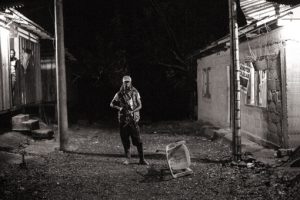
The ELN’s War
The recent 50th anniversary of the Ejército de Liberación Nacional (National Liberation Army—ELN) led journalist Ramón Campos Iriarte to the jungles of Colombia’s western Chocó province, where open war between guerrillas, government forces and paramilitary groups has been escalating. The ELN—self-defined as a Marxist-Leninist organization influenced by liberation theology—was created on July 4, 1964, in … Read more
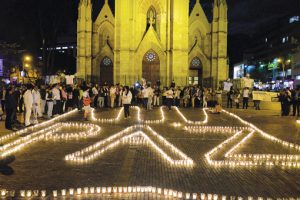
Constructing Peace: How the Private Sector Can Help
Colombia finds itself at a watershed in the country’s history. With the possible end to over half a century of violence, a new peaceful future beckons. But Colombia’s much-desired peace will not just fall from the sky. It will have to be built by all Colombians through an arduous, perhaps decades-long process. We have come … Read more
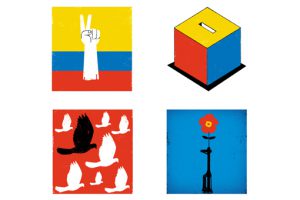
The Myths of the Colombian Peace Process
From its very beginning, Colombia’s peace process has aroused enormous expectations, not only within Colombian borders, but also in the international community. The negotiation is, in good measure, the result of the “Policy of Democratic Security” adopted by President Álvaro Uribe Vélez during his two terms (2002 to 2010), which helped limit the Fuerzas Armadas … Read more
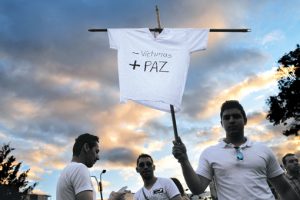
Ask the Experts: Colombian Peace Process
Clem McCartney answers: Colombia has already had the foresight and wisdom to analyze the experience of other countries in bringing internal conflicts to an end—including South Africa, the Philippines and Northern Ireland. As I write, representatives of the conflicting parties in Northern Ireland have just finished meeting Colombian government and FARC negotiators. Perhaps the immediate … Read more
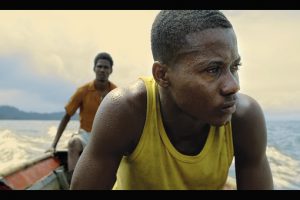
Manos Sucias
Brothers Delio and Jacobo stand by as two Colombian military officers inspect their boat, desperately hoping their stash of cocaine submerged just below the water won’t be discovered. After a few tense minutes, the officers depart, leaving the brothers to await further instructions from the drug lords. This is just one of several suspense-filled scenes … Read more
Monday Memo: Ecuador Amendments — P&G Tax Fraud — Brazil Solar Parks — U.S. Midterm Elections – Colombia Paramilitary Sentenced
This week’s likely top stories: Ecuador’s National Assembly dismisses referendum on controversial constitutional amendments; Argentina suspends Proctor & Gamble for fiscal fraud; Brazil grants contracts for 31 new solar parks; U.S. gears up for midterm elections and immigration reform; Colombian court sentences AUC paramilitary leader to 8 years. Ecuador’s National Assembly Strikes Down Referendum on … Read more
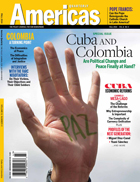
Cuba and Colombia
Articles: published article?1 A Skeptic’s View on the “Peace Dividend” by Alberto Bernal The economic benefits are neither direct nor certain. The Obstacles to Political Integration Post-Peace by Juanita León The obstacles to political integration. Full text available. Law and Reconciliation in Colombia by Rodrigo Uprimny Yepes and Nelson Camilo Sanchez Here’s how to achieve … Read more
Colombia Submits Action Plan to EITI Secretariat
The extraction of natural resources, such as oil, gas, metals and minerals, is supposed to boost the economy and improve the quality of life of the residents of resource rich countries. However, in too many cases, resource extraction has led to social inequality, environmental degradation and corruption. In places like Colombia, it aggravates conflict. The … Read more
Monday Memo: Canadian Executive Jailed – Missing Mexican students – Venezuelan Bolivar – Murder Suspects in Peru – Colombian Hackers
This week’s likely top stories: Canadian businessman Cy Tokmakjian is sentenced to 15 years in Cuba; Mexico searches for 58 missing students; Venezuela’s bolivar hits a new low; Peru arrests two suspects in the murder of Indigenous activists; Colombian peace negotiator Humberto de la Calle says his e-mail was hacked. Canadian executive jailed in Cuba: … Read more
Shale Gas Development in Latin America
New technology and capital has boosted shale gas and tight oil production in the United States and Canada—a phenomenon dubbed the “shale revolution.” This revolution has important geopolitical implications and has shifted North America’s energy outlook from one of scarcity to one of abundance. The rest of the Western Hemisphere is also sitting on expansive … Read more
Colombia Senate Debates Uribe Paramilitary Links
Colombian lawmakers accused former President Álvaro Uribe of links to right-wing paramilitary groups during a polemic Senate debate on Wednesday. Senator Ivan Cepeda led the questioning of Uribe during a 90-minute presentation in which he introduced documents supporting the former president’s alleged ties to paramilitary groups and drug cartels, including the Medellin Cartel financier Luis … Read more
Los Límites del Consejo de Defensa Suramericano
Entre el 14 y el 15 de agosto, en Cartagena de Indias, Colombia, el Consejo de Defensa Suramericano (CDS) llevó a cabo su reunión anual. Desde el momento en que Surinam fue seleccionada por rotación para presidir la Unión de Naciones Suramericanas (UNASUR), de acuerdo a entrevistas realizadas a funcionarios diplomáticos relacionados con la UNASUR, … Read more

